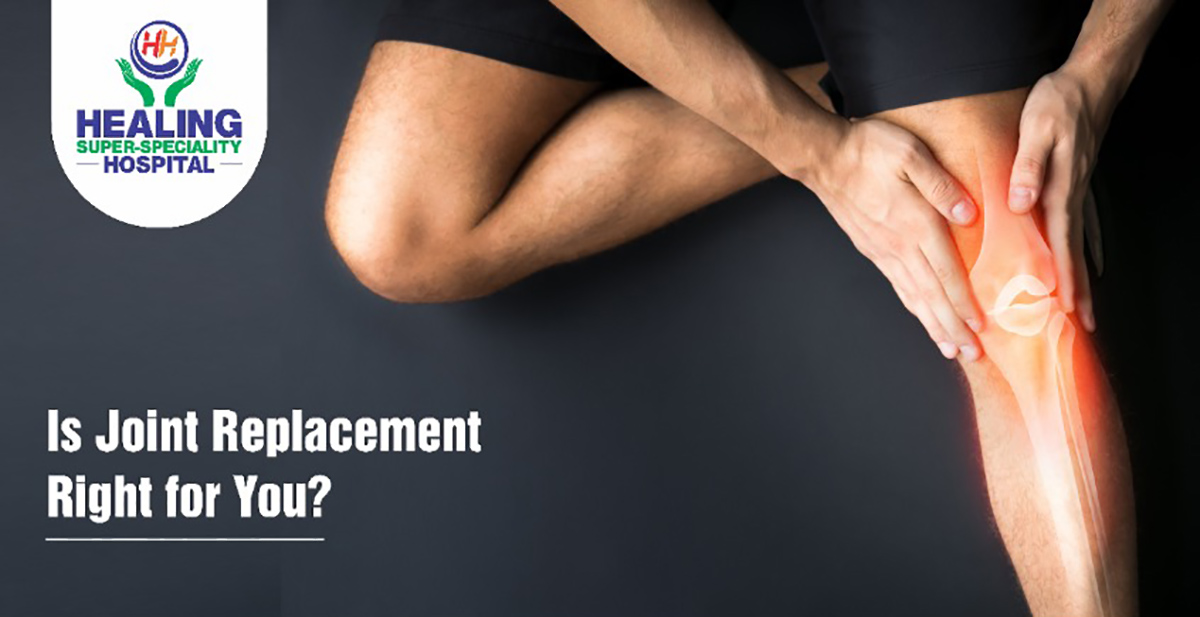The joints of your body are frequently subjected to wear and tear. Joint replacement is a treatment that you should seek if you experience pain and discomfort in your joints such as hip, knee or shoulder while doing your daily tasks.
Joint replacement surgery has advantages, but it also has its drawbacks. Before considering joint replacement, you must carefully assess the benefits and drawbacks according to your body.
Contents:
- When to have a joint replacement?
- Benefits of joint replacement
- Drawbacks of joint replacement

When to have a joint replacement?
Some of the problems for which joint replacement may be helpful are as follows:
- Extreme pain: Pain may occur in any joint. Factors such as extreme exercise and obesity can aggravate joint pain. If you have been experiencing excruciating pain then it is important to get it checked as joint injuries once left untreated may have long-term repercussions.
- Swelling: If you notice swelling around your joints for some time, you should book an appointment with the best ortho doctor in Chandigarh. Even if you may not require a joint replacement surgery, you may need treatment nonetheless.
- Stiffness and restrictive motion: Stiffness or a limited range of motion that isn’t caused by an apparent acute injury may be a sign of a more severe underlying health problem. An orthopaedic doctor will conduct a thorough examination to identify the cause of your disability and may advise a joint replacement surgery.’
- Arthritis: Osteoarthritis is characterized by severe joint pain, stiffness, and a restricted range of motion. You may need a joint replacement if your knee has become deformed due to arthritis.
However, an extreme deformity can make surgery more challenging in some circumstances. If you see a serious malformation, see your doctor as soon as possible.
- Medications or other treatments don’t work: In cases when medications, including strong anti-inflammatory medicines and other less invasive treatments prove ineffective at reducing pain and inflammation, joint replacement surgery can be of significant help.
- Mental health is deteriorating: If you notice that you are getting moody or irritable, or are showing signs of depression such as restlessness, irregular sleeping pattern, fatigue and anxiousness, then it is a sign that you need something other than your current treatment to treat your joints and get a better lifestyle.

Benefits of joint replacement
- Negligible or no pain: After joint replacement surgery, you will experience a lot less pain or even be pain-free.
- Full range of motion: You may be able to use your joint naturally and move it with a complete range of motion depending on your age. This makes daily tasks like walking and household chores considerably easier.
- Sports at ease: In many situations, you may be able to resume low-impact activities such as golf or cycling that were previously difficult for you.
Drawbacks of joint replacement
- Infection: Through joint replacement surgery, bacteria can get a chance to cause an infection if they enter your body. Any form of surgery increases your chances of developing an infection, and joint replacement treatments are no exception.
If you have open sores or ulcers in the area, that can increase the risk of infection. In addition, if you’re overweight or have diabetes, you’re more likely to have an infection after joint replacement.
- May increase pain if you are overweight: Extra weight can put a greater strain on your joints, which could cause components of your artificial joint to shift. This can result in extreme pain or the need for another surgery.
- Dislocation: Although dislocation is a rare occurrence, there is still a risk. The risk of dislocation is highest in the first few months after surgery. In cases when the hip continues to dislocate, further surgery may be required.
- Blood clots: Some veins that carry blood are close to the skin’s surface. Others can be found deep within your muscle or tissue. A blood clot forms in one of these deep veins, which is known as deep vein thrombosis.
This blood clot might result in swelling and agony. It may potentially cause vein damage. The clot may break loose and cause a life-threatening obstruction in rare situations.
- Heart attack: According to a research study, those who have complete hip or knee replacement surgery have a higher risk of a heart attack in the first month after the procedure.
It is best to consider the benefits and drawbacks as stated above, along with getting an opinion from an orthopaedic doctor before deciding on getting knee replacement surgery. To book an appointment with the best ortho doctor in Chandigarh, click here: https://healinghospital.co.in/orthopedic/

























